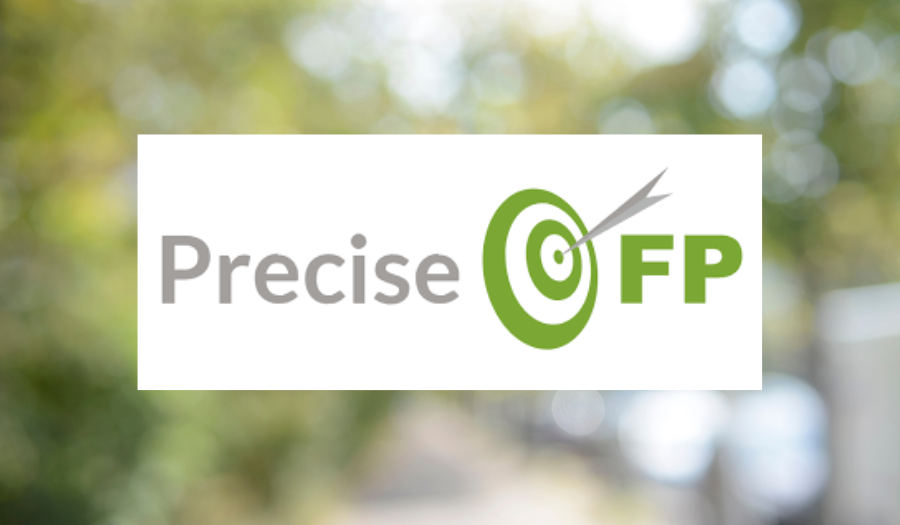SEO Tips for Financial Advisors

In today’s digital age, search engine optimization (SEO) stands as a powerful tool for financial advisors to amplify their online presence and attract high-quality client leads. While SEO may seem like a complex and daunting task, the truth is that now is the perfect time to position your practice for success in the ever-evolving world of online search.
If you already have a website, you’re on track to get indexed and seen in local search results. Any Google search for SEO tactics will turn up a list of items and “how-to’s” on implementing best practices and strategies, but SEO is so much more than just amplifying page titles with keywords. Everything from links to site speed matters. We live in an experience-driven economy, so your website serves as a first touchpoint for many potential clients, and you only have one chance to make a lasting first impression of your practice. A slow-loading site, irrelevant content, or error pages can quickly deter a user or potential client from engaging with your practice. SEO encompasses various factors, from link building and site speed optimization to user experience and compelling content creation. While an IT professional can help you build a solid website foundation, true SEO success requires the expertise of digital marketers and designers who understand the intricacies of user behavior and content strategy.
As a financial advisor, securing the top spot on the first page of search engine results can be the key to unlocking a steady stream of potential clients. Remember, most users don’t venture past that initial set of search results, making it crucial to optimize your online presence for local search visibility.
While SEO may seem overwhelming at first, there are simple steps you can make today that will take less time than you think and kickstart your journey toward higher search engine rankings and increased organic lead generation. By investing a little bit of time, you’ll be on your way to outshining your competition and unlock a world of opportunities for your financial practice.
The following SEO hacks for financial advisors provide you with actionable strategies to enhance your local search rankings. While these tactics primarily align with Google’s best practices—the predominant choice among search engine users—their principles can be applied to other platforms since many search engines like Bing or Duck Duck Go follow similar rules. These practical tips will elevate your local search visibility and position your practice as accessible to potential clients.
1. Optimize Page Titles with Relevant Keywords
The page title is the clickable headline of a webpage that appears in search engine result pages (SERPs). Page titles are a simple, yet effective way to begin ranking for searches related to your financial advisory business. Whether you want to nab a top spot for “Financial Advisor Houston” or any other location-specific keyword, ensuring every page on your site has a relevant title can significantly boost your visibility in local search results.
With the rise of voice assistants like Google Home, Siri and Alexa, keywords that exactly match a user’s query have become less crucial. It’s okay for the language expressed to reflect a search query more broadly or be a phrase instead of just a few words. Search engines now understand the intent behind queries. A few tips to keep in mind:
- Make sure the keywords accurately reflect the page content and try to phrase titles naturally and conversational.
- Don’t keyword stuff. A title that says: “Financial Advisor Registered Investment Advisor Houston” probably won’t land you that top result for any of your targeted terms. Instead focus on one or two relevant keywords per page title.
- Keep titles concise, ideally 50-60 characters. Any longer and the title won’t display properly in SERPs.
- Avoid duplicating titles or using the same keyword multiple times. You’re likely to either get flagged for duplicate content or dilute your indexing.
2. Prioritize Security for your Website
In the ever-evolving digital landscape we live in, website security has become a concern - not only for protecting sensitive information, but also for enhancing your search engine rankings and fostering user confidence. That said, website security should be considered a top priority. Search engines like Google prefer secure sites, rewarding them with higher rankings. Additionally, people are more likely to submit information, such as their name and contact information on a form, if your website is secure.
A lot of browsers have implemented measures to inform users about the security status the websites they visit. For instance, on Google Chrome, an HTTPS protocol (indicated by a padlock icon) signifies a secure, encrypted connection, whereas an HTTP site is flagged as "not secure." This warning can lead to a significant increase in bounce rates, as visitors may promptly leave an unsecured website.
Ensuring website security can be done by obtaining an SSL certificate for your domain, which encrypts the data between your website and its visitors. Most domain providers offer this, charged on a yearly basis, and once purchased your site will be secure.
3. Meta Descriptions are Compelling Snippets
Meta descriptions are concise summaries, up to approximately 155 characters, that provide a glimpse into the content of a webpage. These compelling snippets are what appear below the title and often represent the first interaction with potential clients through organic search. Crafting compelling meta descriptions is an opportunity to showcase your expertise and entice users to click through to your website. By writing informative copy that markets your services and accurately reflects the page’s content, you’ll engage with potential clients by highlighting the unique value you offer them.
While meta descriptions don’t necessarily factor into your page rank or search rankings, they do indicate to Google and other search engines the context of the keywords you’re targeting and helps them place you in more relevant searches. Algorithms analyze meta descriptions to verify the alignment between the page title and actual content, ensuring relevancy and high-quality search results.
General rules to follow when writing meta descriptions:
- Don’t “keyword-stuff”. It provides no contextual value for search engines and can hinder you rather than help you. If you use the meta description field to place every keyword you want to rank for, or repeat a single keyword multiple times, you’re not giving search engines any context – meaning you won’t rank for any terms you’re targeting. Since meta descriptions don’t directly impact rankings, repeating keywords excessively is counterproductive.
- Use targeted keywords in the description. While you don’t want to write something like, “Financial Advisor Financial Advisor” as your description, you do want to contextualize the keywords you’re targeting on that page. Most searchers convert on long-tail searches (keywords or phrases with low search volume), so be specific.
- Don’t repeat descriptions. Same as with titles, if you draft one description and use it across all pages Google will likely view this as duplicate content and you won’t be ranking where you should.
4. Optimize Images for SEO
In the world of search engine optimization (SEO), attention to detail is crucial, and images are no exception. While adhering to technical guidelines, financial advisors like yourself can creatively leverage images on their site to enhance online visibility. Crafting unique and descriptive alt text and titles for images serves a dual purpose: improving search engine rankings and ensuring accessibility for visually impaired users. Alt text is the description of the image or graphic on your site. Search engines use alt text and image titles (the way you save your file usually becomes the image’s title) to rank images in search results. For instance, a firm's logo won't appear in searches without a descriptive alt text. It’s also important to note that alt text is what site readers use to describe images to the visually impaired. Google and other search engines want their experience to be accessible to everyone, and you should too. Compliance aside, optimizing images is a simple yet impactful practice that promotes inclusivity and enhances the user experience.
Best practices include:
- Upload your images in a web-friendly format (JPEG, PNG, GIF). Google and other search engines accept many file formats for images, but if you’re not particularly tech savvy it’s best to stick to what’s familiar.
- Compress images before uploading to your website. This won’t be a problem for smaller images, but it’s wise to use a free compression tool for larger images. Large images can slow down site speed, and site speed is an important factor in page rank.
- Consider creating an image sitemap. Sitemaps provide search engines with a roadmap to your website and make it easier for you to update crawled pages for indexing. They also require someone who is familiar with web development, so if you don’t have immediate access, it’s not a necessary feature.
- Make sure images are rendered in HTML for search engine readability. Search engines read HTML code. If your site was hand-built and doesn’t use a content management system (CMS) for updates, it’s wise to check this feature. If you’re using a CMS like WordPress or HubSpot, you’re in the clear.
5. Build Authority and Link to Other Sites of High Value
Did you know that linking to other websites can benefit your own? It may seem strange, but strategically placed links can enhance your site’s credibility and value to visitors. By linking to trustworthy, high-authority websites (think industry publications, educational resources, important documents hosted on other domains), you’re demonstrating that you can provide a comprehensive picture. So, you’re saying “here’s what I know, and here's what other trusted sources have for more information).
But, what’s domain authority? Basically, it’s the score your site gets from search engines. How do you find a site with high authority? Well, big institutions will most likely have a higher domain authority and rank higher than a local business but linking to them from your site helps provide value and that’s what you’re after. You shouldn’t link out to just any site, and you certainly shouldn’t link to advertisements or other sites in exchange for a link on their website. If it doesn’t provide value, it can in fact hurt your domain authority.
6. Build Inbound Links
Back in the early 2000s, when algorithms were less sophisticated, it was a common practice to “link farm” to build domain authority for your site. At the time, the more inbound traffic (traffic from other websites to your website), helped boost your indexing rank. Typically, one would buy into a link farm for placement and these placements would include weird foreign entities, dark web, and low-quality material. This eventually led to spammy link building techniques, forcing Google to rethink their algorithm. Algorithms started making changes to what inbound links would help, and what links would hurt a site’s domain authority. You’ve probably already guessed that low quality sites don’t help give your domain a boost and can in fact get your site blacklisted.
But not all links are created equal! It's important to choose websites that are secure, reputable, and relevant. Linking to random sites or advertisements can actually hurt your standing in the eyes of search engines. The way to build quality inbound and referral traffic involves a bit of effort. A few ways to do this include doing press with your local news sources or writing a byline for their site. You can do guest posts on sites where you have information to share and, typically speaking, that site will share a link to your site. So, the next time you're creating content, consider incorporating links to valuable external resources. By doing so, you'll build trust and establish yourself as a knowledgeable and reliable source of information.
7. Create a Google My Business Profile
Creating a Google My Business profile is crucial for local search engine optimization (SEO), even if you’re a financial advisor without a website. While it may not improve long-tail search rankings, it is essential for localized search results on Google Maps.
If you perform a local business search right now, the map results appear prominently on desktop or mobile. These are often the first results users will see. As an advisor, you want to be listed in these results when someone searches “Financial Advisor Near Me”.
Setting up a Google My Business account is free and easy to set up. Here are the rules:
- Your listed address must be a physical location. It can’t be a P.O. Box or a virtual location. If you work out of your home or use an address that isn’t placard on the front of a physical location, your account will be disabled. Google is only seeking real business addresses as they inform their Google Maps searches.
- Consistency is key. Any discrepancies or evidence of a recent move or use of a P.O. Box could result in your account being flagged and removed. The address you list on your site, in directories, and advertise to your clients should match the address on your Google Business account.
8. Headings Provide Context
On webpages, headings (H1, H2, etc.) serve a dual purpose and can improve your SEO. Content management systems (CMS) typically guide you in selecting the appropriate heading level. Headings are crawled by search engines to understand the page’s content. For example, if I named my company Elephant Ears and I sell headphones, using the word “headphones” in my headings would help me rank for that term, instead of literal elephant ears.
It's important to differentiate your page title from your page heading. If you’re wondering what the difference is, a page title formatted in HTML code is shown as <title> and is visible only in the source code of your web page. A page heading or <h1> tag, is visible content on the web page. When crafting page headings, you’ll want to remember:
- Headers are crawled for featured snippets, or rich search results. If you search “how is a star born?” in Google, you may see the first result on that page is a box with a sentence answering that query. That is a featured snippet. Below that is a feature called “People also ask” which is also important. Featured snippets are shown before actual results on a page and are a valuable placement to achieve.
- Use natural language or statements instead of stuffing keywords. You’re not experiencing déjà vu. This is important. If you format headers as questions or statements, you’re in a better position to appear in search results than if you just write a few words void of context.
- Avoid duplicating headings on your site. Try to vary your content enough that you’re not repeating yourself. Duplicates can be seen as duplicate content, which hurts your rankings.
9. User Experience Matters
User experience (UX) is a critical, yet often overlooked, aspect of web development. While some may believe creating a great UX on their site requires hiring a dedicated designer, there are cost-effective solutions. Many content management systems (CMS) provide user-friendly templates that can give you a solid foundation. This allows web developers and IT professionals to focus on functionality and content organization, ensuring a positive user experience from the start.
A poor user experience (UX) can create a high bounce rate: the rate at which people click and then quickly exit your site. If users can’t navigate and they bounce back to the search page, Google will see that as a lower engagement rate, and it’ll effect your ranking. So, what does a good user experience require? It’s a lot less complicated than you think. A good rule of thumb is to keep it simple and familiar. In other words, don’t try anything fancy.
- Put your value prop, location and a few service or product offerings on the homepage. Make links big enough to click and state everything matter-of-factly. This isn’t the place to get creative. If what you’re selling is insurance and you write “certified protection” no one’s going to click that. You have a matter of seconds to get their attention, and you’ve just confused them.
- Have a FAQ page. Frequently asked questions are a great featured snippet opportunity, and they give you an opportunity to impress. If you answer queries efficiently and effectively, you’ll gain trust from organic searchers. Use common queries you get from your clients and prospects as a place to start.
- Use headers, graphics, and images to break up big pieces of text. Sometimes a lot of text is necessary. To make that text more engaging, use different visual elements to make the content more palatable.
10. Quality over Quantity
There are a ton of resources on content marketing and strategy to increase your digital footprint. If you’re confident in your writing skills and have the time to spend nurturing a blog for additional content, do it! Additional content can help index your website for more long-tail searches as well as create content for you to share on social media. This can put you in a position to have a voice amongst your community, and hopefully they see you as a thought leader in the financial industry.
If the idea of writing and maintaining a blog strikes fear into your heart, that’s ok. Don’t let blogging overwhelm you. Contrary to popular belief, you don’t need to create new content constantly. The key is quality over quantity. Focus on creating informative and engaging content that resonates with current (and prospective clients that may be interested in your services). Invest time (and money if you need help from a copy writer) into content that serves a purpose and provides value like pages on each service or product you offer. All you need to do once this content is written is make sure it’s up to date. If you change a product offering or service, then change the web page associated with that content.
11. Make Content Original
Content marketing is an effective strategy and great way to build credibility and trust with potential clients. Creating original content on your website or blog can increase visibility through social shares and organic searches. If you’re serious about building quality content on your site or have an associate who’s able to write some stellar content for your blog, this can be a worth-while investment. While not all content needs to revolve around specific keywords, it is important that the information provides value to the reader and demonstrates your expertise as a knowledgeable and trustworthy source of information for potential clients.
We’ve talked about organic strategies; you should also consider content for search engine marketing (SEM). HubSpot talks a little bit about this in more detail, but SEM is more commonly known as paid search marketing. This can be an effective way to reach prospects beyond what you’ve implemented organically. If you want to write content for SEM, here are a couple ideas:
- Be original and know your ideal client/audience. Who is your ideal client? What are their goals and concerns around planning for retirement? Once you’ve narrowed in on that audience demographic and interests, try and perform a search for your targeted term and look at the content that’s indexed on page 1. Then write something new, and better. Take a unique perspective on the topic, while hitting your targeted terms and variations on that term. If your content lacks originally and reads like everything else already indexed, you won’t create value or achieve high search rankings.
- Focus on long-tail keywords (or more specific phrases). Instead of focusing on one, high-volume keyword, use keyword research to find terms people use and create a cluster of associated keywords and their variations. Targeting multiple keywords through specific phrasing is a great way to have the same piece turn up in various search results rather than just one, highly targeted piece.
12. Try Video Content
Using video to talk about topics you’re passionate about instead of writing content can also get you ranked in search results for relevant topics. Video excels on social platforms like Instagram, Facebook, YouTube, or LinkedIn. They showcase your personality, build trust, and reach audiences beyond those actively searching for financial advisors. YouTube is the second most prevalent search engine used today. Try creating a YouTube channel where you store your videos. You can then put your videos on your blog or social profile to cross-promote the content you’ve created.
13. Get Technical
Here’s where having a great web developer or IT professional can come in handy. Perhaps your current firm already provides this service. You should be visiting your site regularly to inspect its health to ensure a top-notch user experience. Things to look out for include:
- 404 errors. If you’ve had your site a long time or have been through multiple web developers or people managing your content on a CMS, you should conduct a site audit and click through all the pages available on your site. If any of them present an error, it may be because the content was deleted at some point. You’ll want to redirect that page using a 301 redirect to another relevant page on your site, especially if that page is being indexed.
- 500 errors. Any error that comes from loading a page that presents itself with a 500 number is a server-side error. If this happens regularly, it may be time to change your site’s hosting platform. Check your site on mobile networks because if pages are stalling here, your server isn’t functioning properly.
- Site speed. Your website’s speed is crucial both for user experience and SEO. While we discussed image optimization earlier, other elements can impact the site’s loading time. Consider consulting with a web developer if you need assistance with optimizing faster loading on slower connections or improving user experience on mobile devices. There are a variety of ways they can help!
14. Indexed Pages Don't Equal Qualified Leads
You’ve created a clear, fast website with quality content that targets high-volume and long-tail keywords. Initial traffic growth as a result is a positive sign, indicating your website’s effectiveness to attract prospects. However, we know that not all leads are qualified. There’s a good chance you’ll get some unqualified leads, and that’s ok. However, you don’t want to be spending time with people who aren’t serious prospects. While you will most likely have a few meetings that don’t bear fruit, there are some ways to maximize your time and qualify leads:
- Utilize website analytics (e.g. Google Analytics) to identify sources of unqualified leads. If you don’t have Google Analytics set up to track this information, it’s free to set up and use in perpetuity, so it’s a worthwhile investment of your time. If a lot of unqualified leads are coming through a particular channel, it’s time to refocus your efforts.
- Referral Leads take priority. Prioritize referral leads, particularly from existing clients, as they indicate a higher chance of qualification.
- Review successful conversion channels to optimize future efforts. See where qualified leads have come from and continue to nurture those channels.
I hope these SEO tips will kickstart your journey toward higher search engine rankings and increased organic lead generation. By investing a little bit of time, you’ll unlock a world of opportunities for your financial practice. The road starts here.
Author Info

Allison Warner is the Corporate Marketing Director at USA Financial, where she leads the development and implementation of corporate...
Related Posts

Increase Tech Efficiency in Your Advisory Practice: FutureVault
In today’s fast-paced, digitally driven world, financial advisors need tools that not only streamline operations but also enhance client engagement and security. One tool leading the charge in advisor efficiency is FutureVault, a secure digital document vault solution designed specifically for wealth advisors.

Technology That Can Help You Get More Clients: PreciseFP
In an industry where every minute counts, financial advisors need tools that can enhance productivity and simplify workflows. Whether you’re focused on growing your client base or deepening existing relationships, having access to the right financial advisor technology is key to building a streamlined, client-centered experience.

4 Biggest Financial Advisor Marketing Trends for 2025
In recent years, industries have undergone transformations which have compelled businesses to adapt and innovate in order to remain competitive. For example, the rapid advancement of artificial intelligence (AI) has transformed our digital landscape over the past year. As marketers, it's crucial to adapt to change and stay ahead of the competition. This means being constantly aware of emerging trends, technologies, and customer behaviors.

Increase Tech Efficiency in Your Advisory Practice: FutureVault
In today’s fast-paced, digitally driven world, financial advisors need tools that not only streamline operations but also enhance client engagement and security. One tool leading the charge in advisor efficiency is FutureVault, a secure digital document vault solution designed specifically for wealth advisors.

Technology That Can Help You Get More Clients: PreciseFP
In an industry where every minute counts, financial advisors need tools that can enhance productivity and simplify workflows. Whether you’re focused on growing your client base or deepening existing relationships, having access to the right financial advisor technology is key to building a streamlined, client-centered experience.

4 Biggest Financial Advisor Marketing Trends for 2025
In recent years, industries have undergone transformations which have compelled businesses to adapt and innovate in order to remain competitive. For example, the rapid advancement of artificial intelligence (AI) has transformed our digital landscape over the past year. As marketers, it's crucial to adapt to change and stay ahead of the competition. This means being constantly aware of emerging trends, technologies, and customer behaviors.

